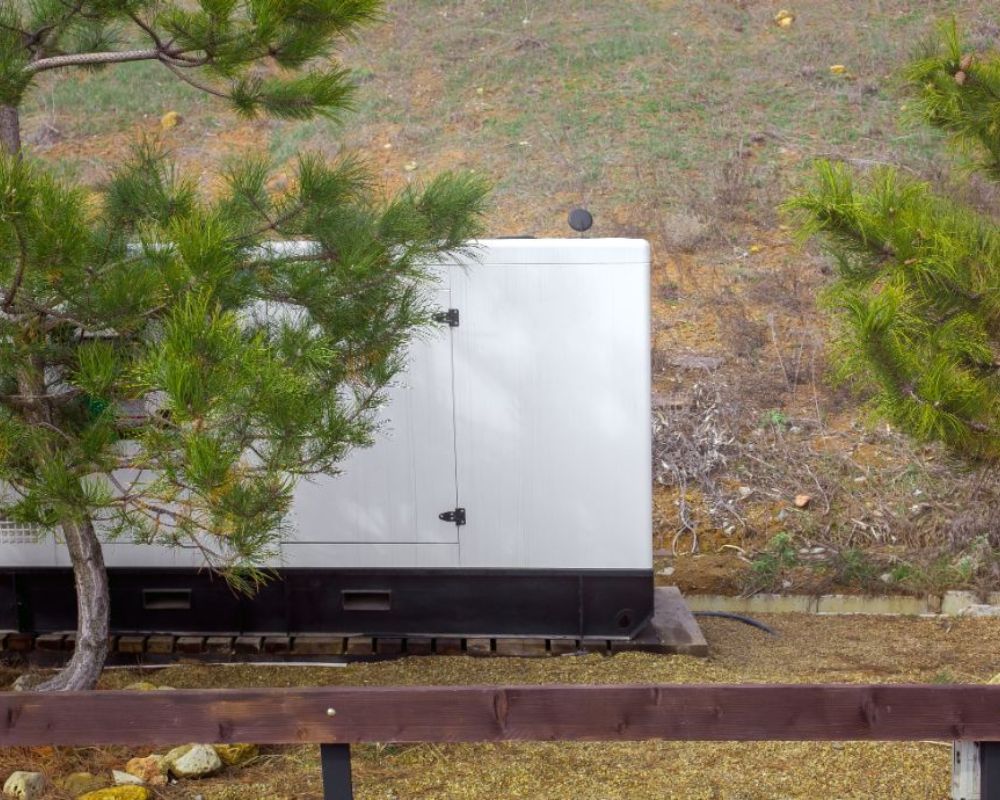Power outages can have severe consequences – no matter the cause. In Northern Arizona, we have monsoon storms, lightning strikes, heavy snow storms, and more that can trigger a power outage. Power outages can be annoying, but in some cases cause serious issues with your home or even safety. Backup generators are the perfect solution to keeping your lights on and your home safe during a power outage. In this article, we’ll dive into the importance of backup generators and why you should seriously consider installing one in your home.
Why Do You Need Backup Power?
Storms can often leave homes and businesses without electricity for extended periods of time. Having a backup generator helps keep your home safe for family and friends and keeps your business doors open!
Power outages are often unexpected and don’t discriminate against residential or commercial areas. A backup generator is a contingency plan, allowing you to function normally when there’s a hiccup in the grid.
When thinking about a business, anytime you have to close doors, there is a potential loss in revenue. If the power is down for multiple hours, it can be thousands of dollars of lost income. Backup generators will keep your doors open and potentially pay for itself in the first event of a power outage.

Residential Backup Generators
When the power fails due to storms, accidents, or maintenance, backup generators will kick in seamlessly, keeping essential appliances, HVAC systems, and lights running. This means no more spoiled food, uncomfortable temperatures, or stumbling around in the dark.
There are many types of residential generators to choose from, each tailored to your specific needs. Portable generators provide flexibility and convenience but have limited capacity. Standby generators, on the other hand, are permanently installed and automatically turn on during outages. They can power an entire home, making them an ideal solution for long-term power outages. If you have family members who require specialized medical equipment or have specific electric needs – standby generators will give you peace of mind every time.
Of course, the choice depends on factors like budget, home size, and power requirements. Regardless of the type, a residential backup generator will keep you and your family safe and warm while you continue to enjoy watching the snow fall outside.

Commercial Backup Generators
Imagine a busy dinner rush in your restaurant, and suddenly, the power goes out mid-service! This may have already happened to you, and you know that it likely cost you a pretty penny because you could no longer safely cook or serve food. That’s just an example from the restaurant industry! Commercial backup generators are designed to prevent this kind of mishap from happening!
Standby generators, often connected directly to a building’s electrical system, automatically kick in when the main power source fails. Your guests might see the lights flicker, but other than that, they’ll be clueless as to what’s going on in the outside world. Whether you own and operate a retail store, hospital, manufacturing plant, or office space, standby generators are your safest bet for keeping the lights on and your customers happy!

Choosing the Right Generator
When selecting the right backup generator, consider these factors:
- An undersized generator may not power all essential equipment, while an oversized one can be inefficient and costly. We’ll help calculate your power needs, factoring in appliances and systems you want to operate during an outage.
- Generators typically run on natural gas, propane, diesel, or gasoline. Each has pros and cons, including availability, cost, and environmental impact.
- Different generators offer various features, such as automatic transfer switches, remote monitoring, or noise reduction technology. We’ll talk through these options with you during our free consultations.
- Proper installation is important for safety and performance. Having a professional electrician install the generator according to meet local codes and regulations will save you headaches in the long run.
- Regular maintenance is essential for generator longevity. Consider the availability of maintenance services when choosing a model.
If you’re still wondering which generator is the right choice for you, reach out to us for a free consultation, and we can talk through the options that are right for you.

Installation Process
Here’s an overview of the installation process:
- Site Assessment: The installation begins with a site assessment by a qualified electrician. They evaluate the location for the generator, considering factors like proximity to the main electrical panel, fuel source availability, and local building codes.
- Permitting: Depending on your location, you may need permits for generator installation. Your electrician will help obtain the necessary permits and ensure compliance with local regulations.
- Foundation and Placement: Depending on the size and placement of the generator, a foundation, often a concrete pad, may need to be poured.
- Electrical Connection: The generator is connected to your home or business’s electrical system, which means a seamless power transfer during an outage.
- Fuel Connection: If your generator runs on natural gas or propane, a fuel line connection needs to be installed.
- Testing: After installation, testing is conducted to ensure the generator operates correctly and switches to backup power seamlessly.
- Maintenance: Ongoing maintenance schedules are established to keep the generator in peak condition.
Professional installation is key to installing backup generators. Certified electricians have the expertise to ensure safe, code-compliant, and efficient installation. Their knowledge prevents potential hazards and guarantees that your backup generator will perform reliably when it’s needed most.

Cost Considerations
Investing in a backup generator involves both upfront costs and long-term savings. Let’s talk about both:
- Upfront Costs: Backup generators come in various sizes and fuel types, influencing their upfront price. Installation costs, permits, and any necessary infrastructure adjustments should also be factored in.
- Long-Term Savings: Generators can prevent costly downtime in commercial settings, safeguarding revenue and customer trust. In residential contexts, they preserve the comfort and safety of your family during power outages, especially if you have medically fragile family members, sparing you potential expenses associated with displacement.
- Peace of Mind: Perhaps the most valuable return on investment is peace of mind. Knowing that your home or business will remain powered during outages, whether due to storms or grid failures, is priceless.
Maintenance and Testing
Maintenance:
Routine maintenance checks include inspecting fuel and oil levels, changing filters, and verifying electrical connections. Maintenance not only prevents potential issues but also extends the generator’s lifespan.
Testing:
Periodic load testing checks the backup generator’s functionality, response time, and seamless transition to backup power. Any anomalies or malfunctions can be addressed promptly, guaranteeing reliability during emergencies.
Incorporating a maintenance and testing schedule into your generator’s care plan is a proactive approach. It ensures that your investment remains dependable, offering peace of mind and uninterrupted power when confronted with unexpected outages or emergencies.
Be Prepared For Any Winter Storm
Be prepared for winter’s unpredictable power outages. Install a backup generator now to ensure your home or business stays warm, safe, and functional during storms. Give us a call to set up your initial consultation!








